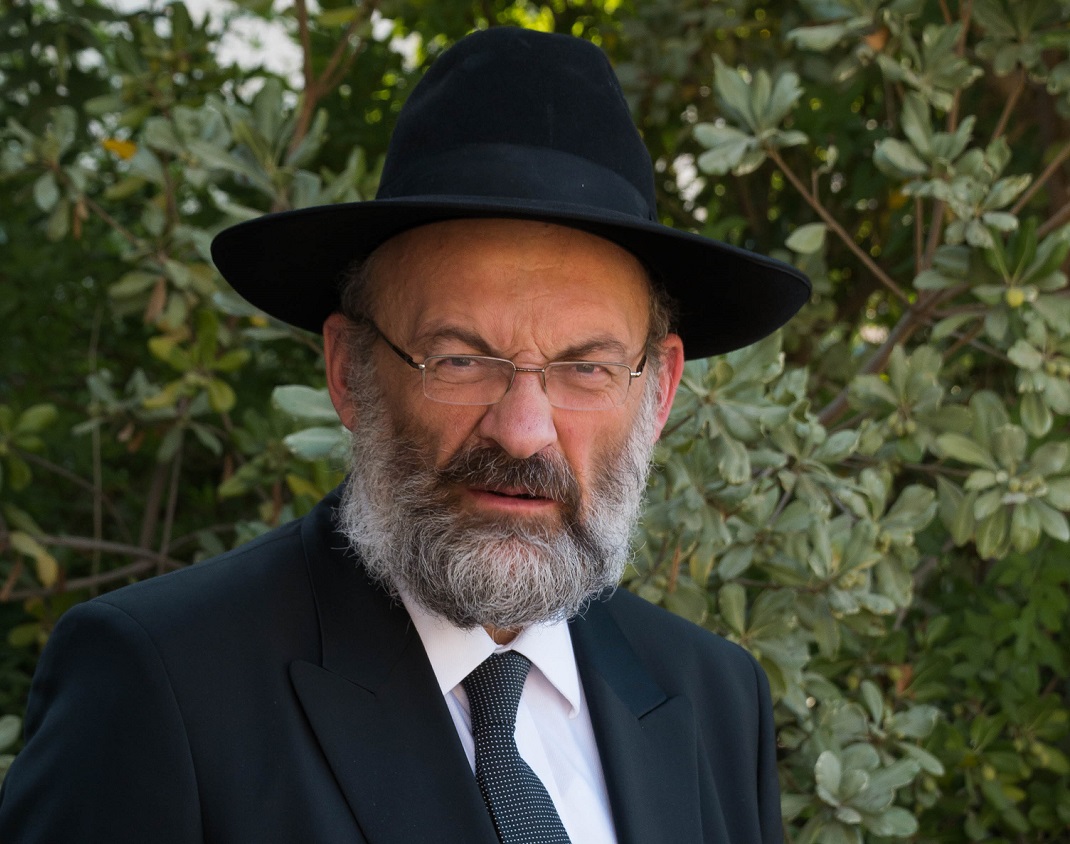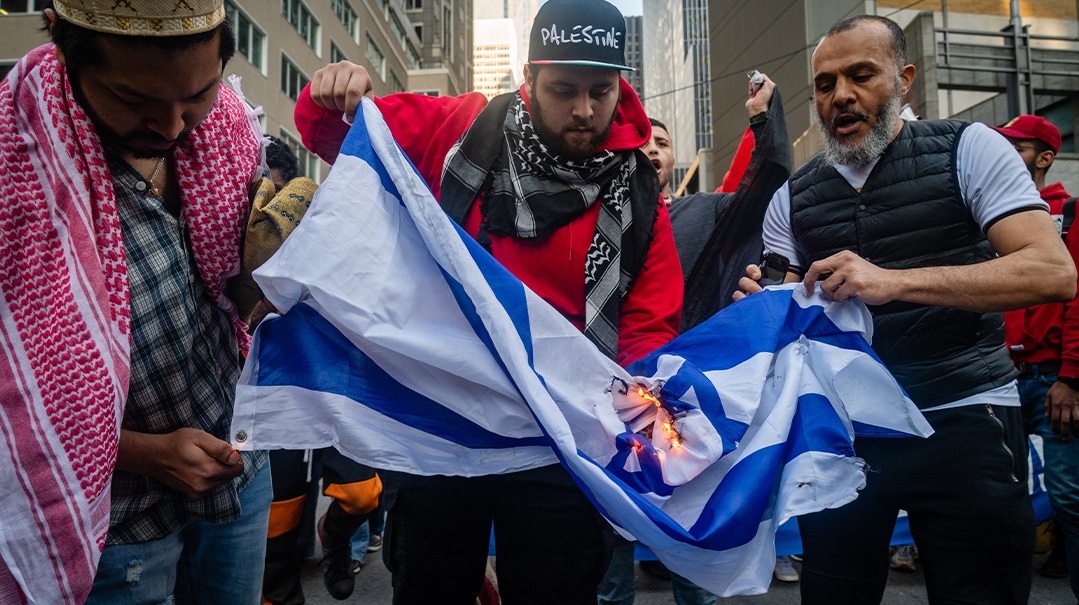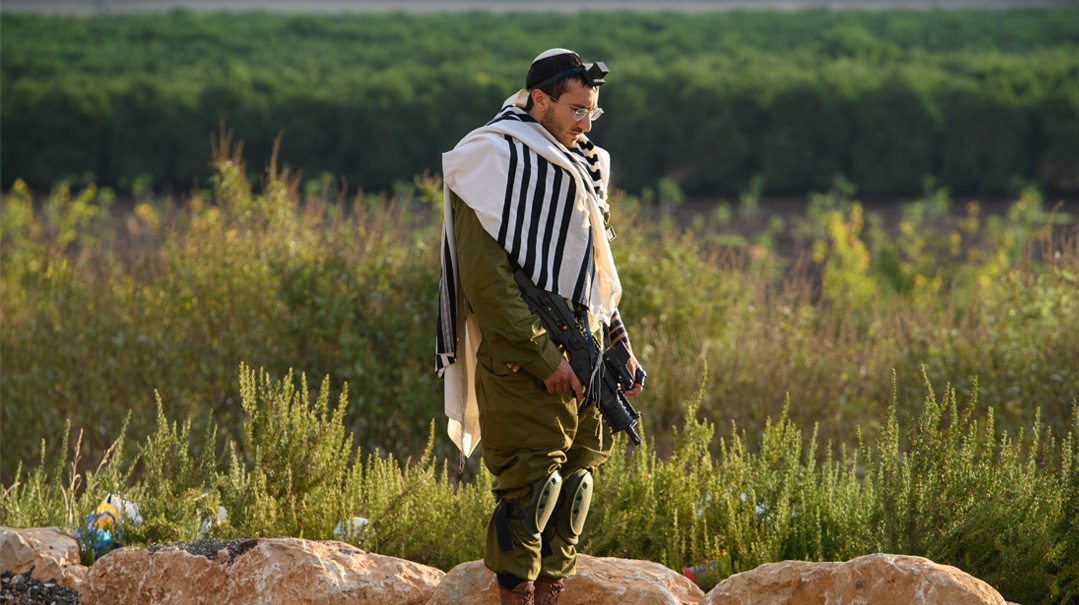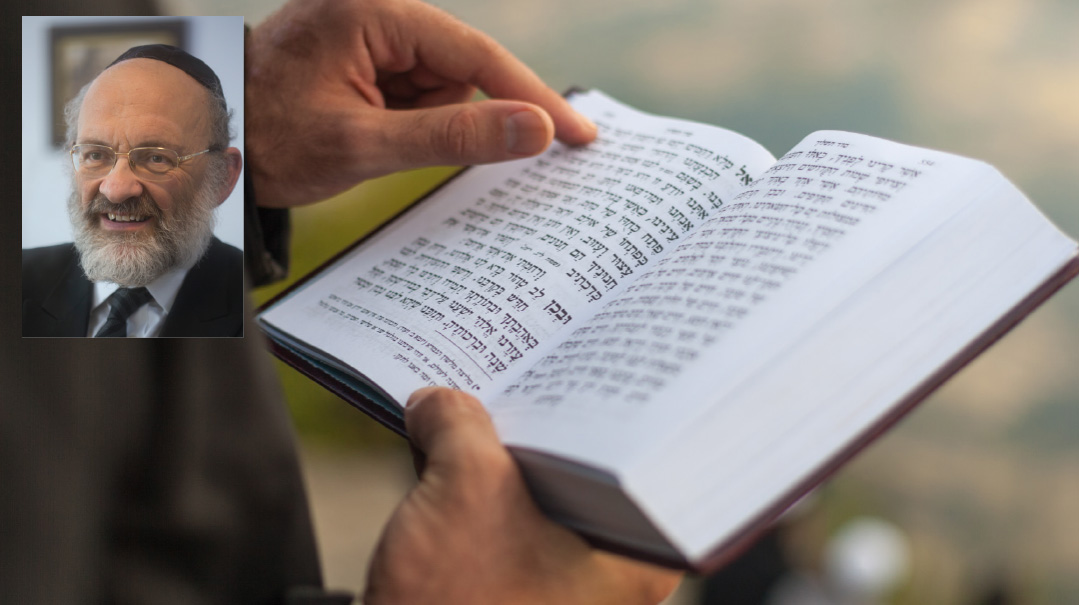Shabbos, Day of Emunah

The best time to work on emunah is on Shabbos, because Shabbos is mei’ein Olam Haba, a taste of the world to come
Prepared for print by Rabbi Eran Feintuch
When it comes to emunah, this is the best of times and the worst of times.
Since the destruction of the Beis Hamikdash, Hashem’s Hand in the world has never been more manifest. We listen and watch in real time as Hashem demonstrates His Hashgachah over the entire globe: wars, political upheavals, earthquakes, and tsunamis. In the past, people knew little about what occurred outside their region, but today we see Hashem’s direction everywhere, steering the world toward its purpose.
But knowing so much about the world has a downside as well. We see Hashem’s Hashgachah so vividly in all the momentous events that fill the headlines that we easily lose sight of His supervision in our own lives. Someone who only sees the sun at high noon won’t detect the faint light of dawn; so too, the striking displays of Hashem’s Hashgachah make us blind to His guidance where it’s less conspicuous.
Our emunah is strong, but impersonal. The major events around us prove Hashem has a plan for the world, and for Klal Yisrael. But in the minor developments of our everyday lives, we don’t see Hashem’s plan for us. We don’t see how Hashem is guiding us, teaching us, or pushing us to grow.
Pointing out Hashem’s Hashgachah in our individual lives isn’t just a personal expression of emunah — it’s the foundation of it. The Ramban in parshas Bo says that emunah has to connect to our lives. It’s not enough to believe in Hashem’s Hashgachah in the world at large; we have to see Hashem’s guiding hand in our daily lives. Our own lives, not the world stage, is where emunah begins.
If emunah isn’t personally relevant, it’s vulnerable. Like a tree, it needs strong roots. The roots of emunah are our personal lives. If our emunah lacks those roots, any gust of wind can blow it away.
We have to see Hashem’s guidance in our everyday lives. It’s not enough to believe that everything that happens to us comes from Hashem; we have to try to see how Hashem is guiding us and what He wants from us.
The best time to work on this is on Shabbos. This is because Shabbos is mei’ein Olam Haba, a taste of the world to come. In Olam Haba, we won’t have any questions of faith. We’ll see how every event in history played a role in bringing the world to its purpose. On Shabbos, we get a glimpse of that. The kedushah of Shabbos illuminates the events of the preceding week, and gives us a clearer understanding of Hashem’s guidance.
The kedushah of Shabbos was revealed in the desert when the mahn did not fall, and that same Shabbos also revealed the day’s power to cast new light on the events of the week. That week, Dasan and Aviram had left the mahn over till the morning, defying Moshe Rabbeinu’s instructions. It became infested with worms. But a few days later, the Jewish People left a portion of mahn over for Shabbos, and in the morning they saw it didn’t have a single worm.
The kedushah of Shabbos was revealed through Dasan and Aviram’s aveirah. Had they not left the mahn over during the week, the Jewish People would have assumed this holy bread from the Shamayim couldn’t rot. The contrast with the events of the week revealed the immense kedushah of Shabbos. To be sure, Dasan and Aviram’s act was despicable. But on Shabbos, the Jews saw how even that terrible aveirah played a constructive part in revealing kedushah.
Shabbos is a day of emunah. It can open our eyes to see that everything has a positive purpose. An apparent loss might actually be a gain, or Hashem might be prodding us to grow in new ways.
We have to make this our family avodah on Shabbos. Sit together with your family, speak about your week, and try to see its events in a different light. Encourage the rest of the family to do the same. Help each other to see the week’s events in a new perspective. Together, you’ll gain a stronger sense of the positive aspects in unpleasant events, and the ways you can grow from them. This will teach us to see Hashem’s guiding hand not only in big dramatic events, but in our everyday lives.
If we stick with this project long term, we’ll learn another crucial lesson in emunah as well. We’re accustomed to thinking about emunah when a tragedy or crisis occurs. We know it’s a message from Hashem, and we search for a “chizuk” to accept. Of course, it’s important to try to improve our ways. But if that’s the extent of emunah to us, we come to believe Hashem is only interested in our performance.
Sometimes, a talmid gets the painful impression that his rebbi isn’t really interested in him, only in his learning. The rebbi makes great efforts to get the talmid to come on time and learn well, but doesn’t express enough interest in the talmid as a person. Unfortunately, without realizing it, we sometimes view Hashem that way. We think He only gets involved in our lives when our halachic observance lapses.
But when you see Hashem’s Hashgachah every single day, you come to understand that He’s not only interested in your performance; He’s interested in you. He created you and accompanies you every moment, because He wants you, not just your performance.
That opens up a lot of doors for us to understand what Hashem wants from us. Sometimes He wants us to improve our mitzvah observance. But many times, He wants us to grow in other ways. Become broader, more versatile, more independent. When we consider those possibilities, we’ll grow bigger, not just better.
If we think performance is the only option, every message from Hashem is the same: Do better. Every challenge, every loss tells us the same thing, like a piano on which every key plays the same note. And we never know what to work on, because the demand is generic. So most of the time, we take on a chizuk in one-size-fits-all areas like tzniyus, shemiras halashon, or hasmadah.
But if we consider the possibility that Hashem is educating us, the messages become personal and specific. Every difficulty has a unique effect, and impacts each person differently. To decipher Hashem’s lesson, we have to see how the difficulty affects us most. For example, some people who lose a lot of money are hurt most by the limitations on what they can buy; maybe Hashem wants them to learn they can make do with less. Others are bothered more by their diminished ability to give tzedakah; maybe Hashem wants them to learn to contribute to others in different ways. Others might suffer more from uncertainty and anxiety; maybe Hashem wants them to work on bitachon.
It’s intriguing to think about — and comforting. Even difficult situations reassure us that Hashem is interested in us and wants us to grow.
Try to make this a family project on Shabbos. Like any new endeavor, it might feel awkward at first, but soon it will become a lively discussion your family looks forward to. You’ll start to see that Hashem is always with you, helping you, teaching you, and pushing you to grow. Your children will internalize that they themselves are important to Hashem — not only their performance. Together, you’ll discover that emunah isn’t just a mitzvah — it’s a fascinating and meaningful way of life.
(Originally featured in Mishpacha, Issue 950)
Oops! We could not locate your form.





